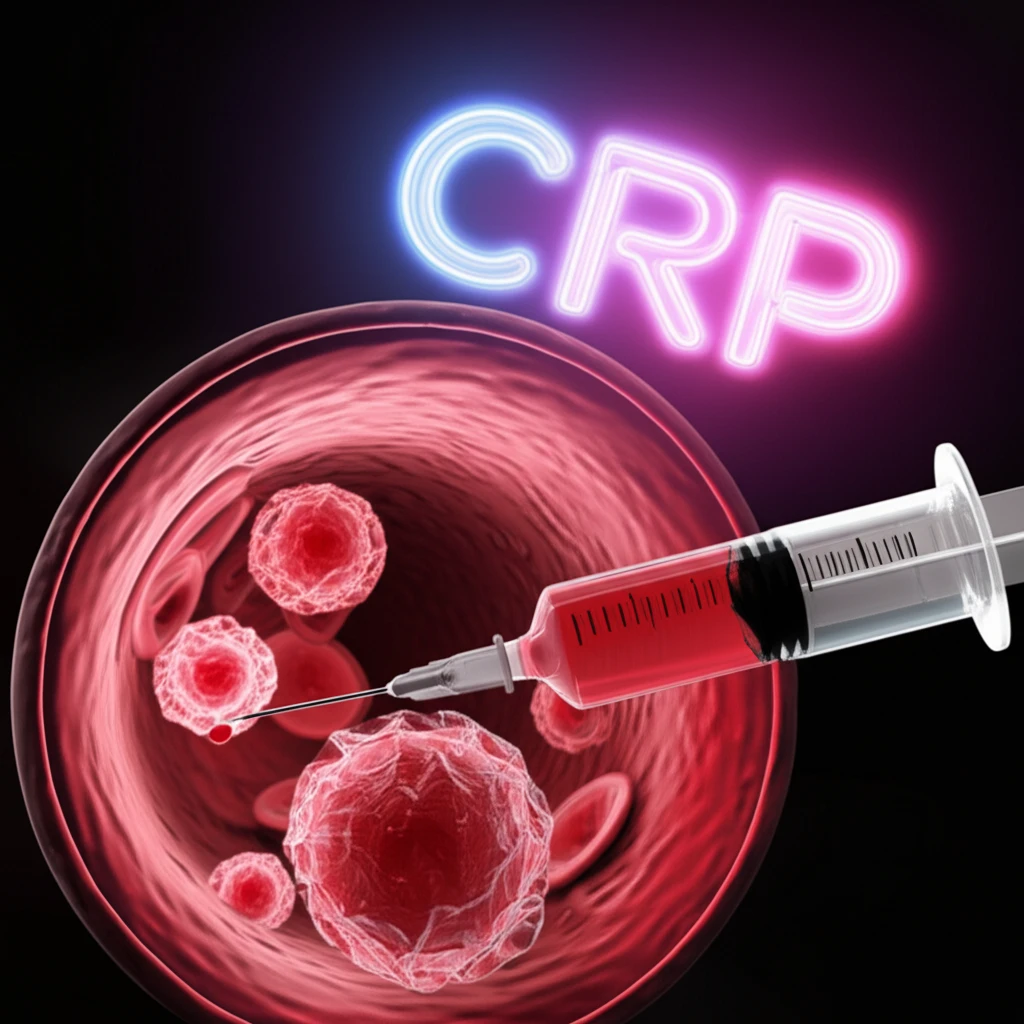
CRP and Cancer: Could a Simple Blood Test Reveal the Future?
"Unveiling the Link Between C-Reactive Protein, Cancer Progression, and Treatment Outcomes."
Cancer, a formidable adversary, continues to challenge medical professionals and patients alike. The complexities of this disease often leave individuals seeking answers, not just about their diagnosis, but also about what the future holds. The quest for early detection, effective treatments, and accurate prognoses is relentless. In the midst of this, a simple blood test, often overlooked, is emerging as a key player in the fight against cancer.
C-reactive protein (CRP), a substance produced by the liver in response to inflammation, is gaining recognition for its potential to predict cancer outcomes. While typically associated with infections and inflammation, emerging research reveals that CRP levels can offer crucial insights into cancer progression and treatment effectiveness. This article will explore the connection between CRP and cancer, shedding light on its significance and implications for patients.
This deep dive into CRP and cancer aims to explain its role in cancer, highlighting its use as a prognostic tool. We will delve into the science behind CRP, its correlation with various cancer types, and how it may impact treatment strategies. Ultimately, we'll explore how this simple blood test could potentially change the landscape of cancer care, offering hope and new possibilities for those affected by this disease.
Understanding C-Reactive Protein and Its Role in Cancer

To understand the significance of CRP in cancer, it's crucial to grasp its basic function. CRP is an acute-phase protein, synthesized in the liver in response to inflammatory signals. When the body encounters inflammation, whether from an infection, injury, or chronic disease, CRP levels rise. This increase is a natural response, designed to help the body heal and protect itself.
- The Inflammatory Link: CRP levels often increase in response to the inflammation caused by cancer.
- Prognostic Indicator: Elevated CRP levels can indicate more aggressive disease and poorer outcomes.
- Treatment Response: Monitoring CRP levels can help assess the effectiveness of cancer treatments.
The Future of CRP in Cancer Care
The connection between CRP and cancer offers a promising avenue for improving patient care. As research continues, the role of CRP is likely to expand, potentially leading to more personalized treatment strategies and improved patient outcomes. This simple blood test might just become a powerful ally in the fight against cancer, offering hope and guidance in the face of this complex disease.
